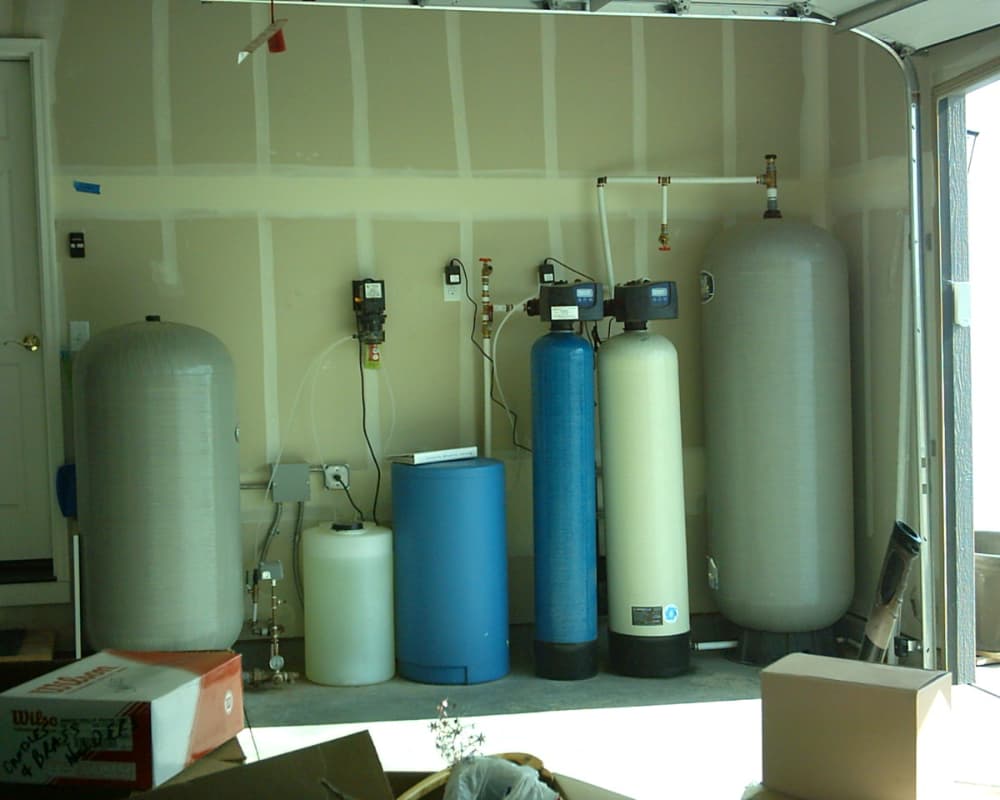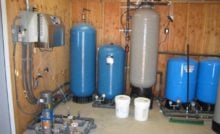Podcast Q&A 5: I want to install an iron filter in my basement…


Podcast: Play in new window | Download
Subscribe: RSS
Hello, welcome to the Clean Water Made Easy Podcast Question & answer episode 5. My name is Gerry Bulfin, and I’m WQA certified master water specialist & long time water treatment contractor.
Each week on our main podcast we go deep into various well water treatment systems and water quality issues and problems, but I also have these quick Q&A episodes that go over quick questions that folks ask us.
Every day we get a lot of phone calls, e-mails, chats and I try to pick the most interesting one and answer it.
Today Karen contacted us through our website and said:
“I want to order and install a water iron filter, but it’s in my basement. I don’t have anywhere to put the drain for the iron filter, can I run it up to the 1st floor into my washing machine drain?”
Karen, that’s a very good question, that comes up a lot as well.
Folks put in water softeners or iron filters, which require a backwash or drain line and it’s usually a 1/2″ diameter tube.
The answer is, Yes, you could run it up into the washing machine drain, but you may want to use a slightly larger diameter tubing. And be sure to check the flow rate to make sure the water coming out is at the proper flow rate for that iron filter.
An important point is that you have enough water pressure and flow in order to do that.
So, as an example: Say, your iron filter is about 3 or 4 feet tall, maybe it’s 5 feet tall, you know, the size you get, and the drain would come off the top. So you can run that up about 10 vertical feet without too much trouble, I mean without having a lot of pressure loss or drop in the flow rate, but you don’t want anything restricting your drain.
When your iron filter backwashes, you want it to get a nice fast flush and anything that’s restricting in your drain line is going to affect how well the iron filter gets cleaned. It’s true with water softeners as well and other backwashing filters.
There are a couple of things you can do mitigate this problem, one thing you can do if you have to run the tubing 10 feet or longer, you can upsize the size of the tubing.
Say it is coming out at half-inch but you could convert that to 3/4″ or 1″ diameter tubing. With 3/4″ tubing, you’re not getting friction loss for that tubing.
Whatever size tubing you use, if you need to run the tubing up in elevation, or a long run across a room be sure to double check the flow rate and make sure you’re getting the rated capacity that you need.
For example, say you need 10 gallons a minute, you want to measure it at the tubing where it’s coming out on, near your washing machine to make sure that it’s backwashing at the right rate. You can measure the flow into a 5 gallon bucket and time it. For 10 gallons per minute, the 5 gallon bucket would need to fill up in 30 seconds.
You might be able to adjust your water pressure a little bit on your well. It is not going to change the actual flow of your well pump but it has to do with how much water pressure you have and the flow rate you have already coming from your well pump.
Sometimes folks will realize that they have a drain but it’s on the other side of the room and don't want to run it through the air or through the floor, so they run the tubing up on the wall or the door and then down into the drain. That’s okay too, you can run it sometimes thirty feet, but again, you wouldn’t want to use half-inch, you’d want to upsize the size of the tubing.
Poly tubing is cheap so you can get 3/4″ or 1″ tubing and that way you don’t have problems with pressure drop in that backwash tubing.
Okay, I hope that helps some folks out there, that’s a common question that comes up.
Do you have a question about your well water?
Please email me at gerrybulfin@cleanwaterstore.com and we’ll be happy to answer any questions you have about your well water or water quality in general!
Recent Posts
U.S. Water Problems by Region: Common Contaminants & Solutions
Curious about U.S. water problems by region? Water quality isn’t just a national issue—it’s a…
Wildfire Water Contamination: How to Ensure Safe Water After a Fire
Wildfire Water Contamination: What You Need to Know After the Fires Wildfire water contamination poses…
Clean Water For Pickles: The Secret Ingredient
Using clean water for pickles is not just a best practice—it’s crucial for achieving great…
How to Test and Remove Manganese in Well Water: A Complete Guide
If you rely on a well for your home’s water supply, you might have encountered…
Effects of Chlorine and Hard Water on Skin: Top Skin Problems and Solutions
Effects of Chlorine and Hard Water on Skin: Top Skin Problems and Solutions Have you…
How Whole House Water Filters Keep Your Family Safe: A Mom’s Guide
When creating a safe and healthy environment at home, clean water is essential—especially for moms…

